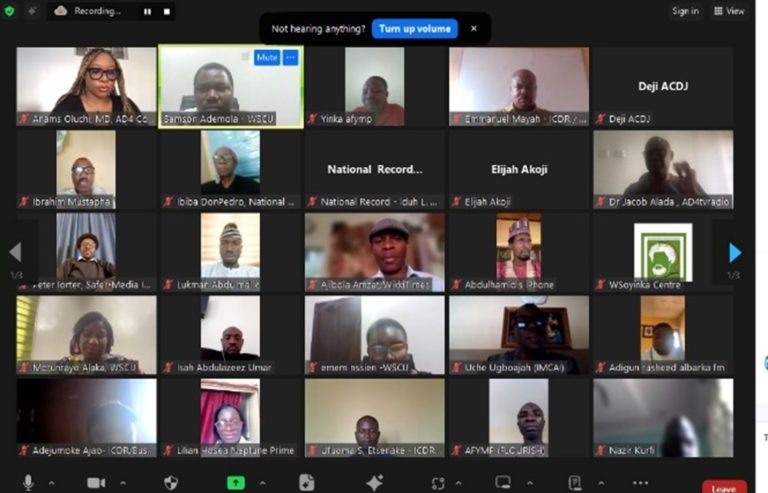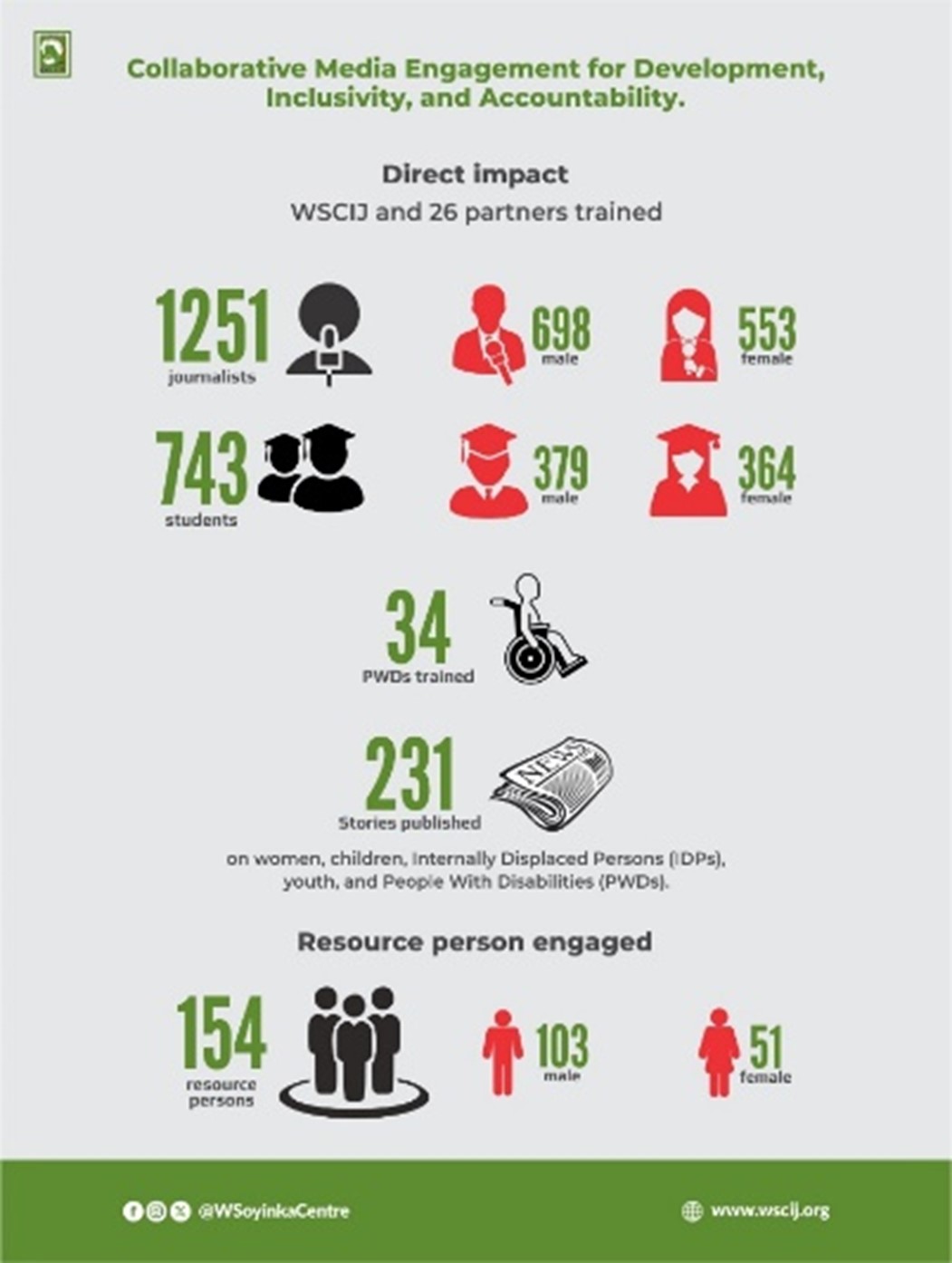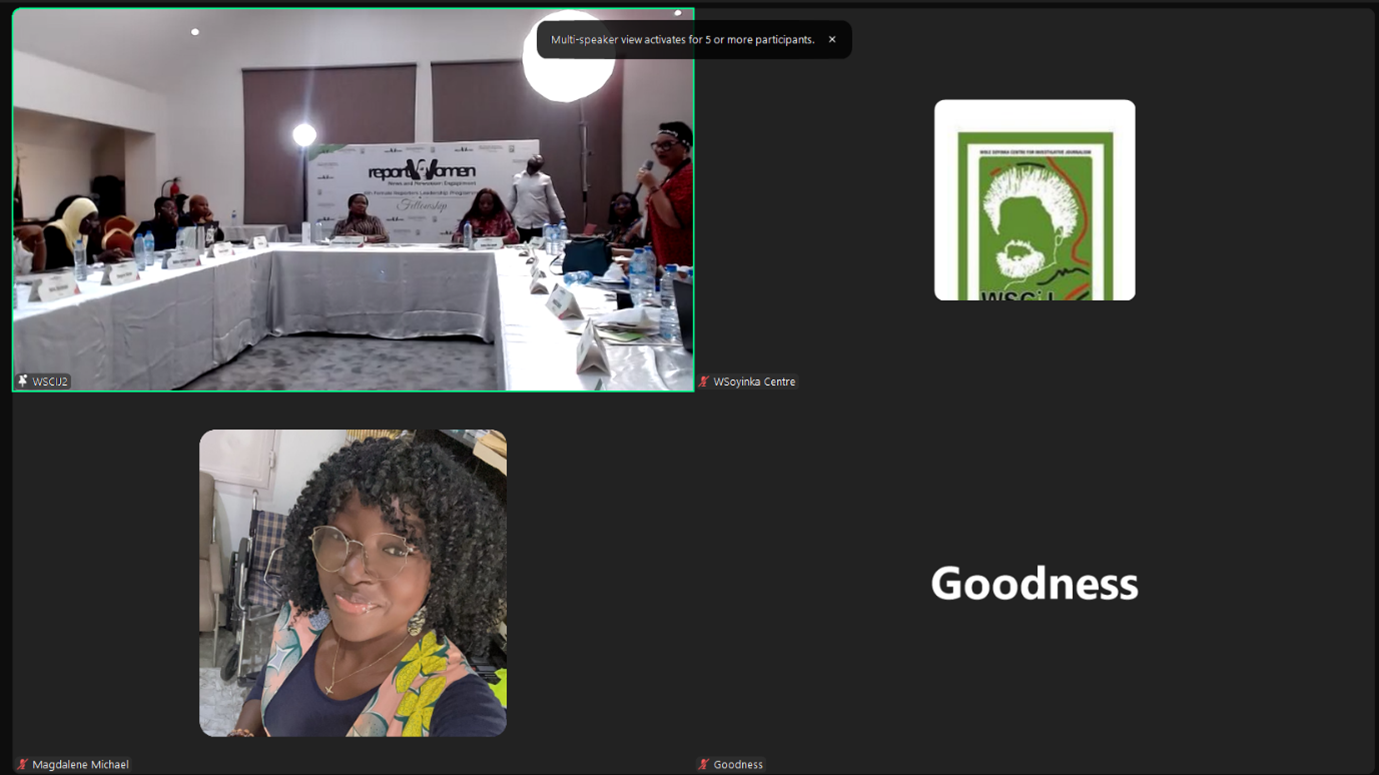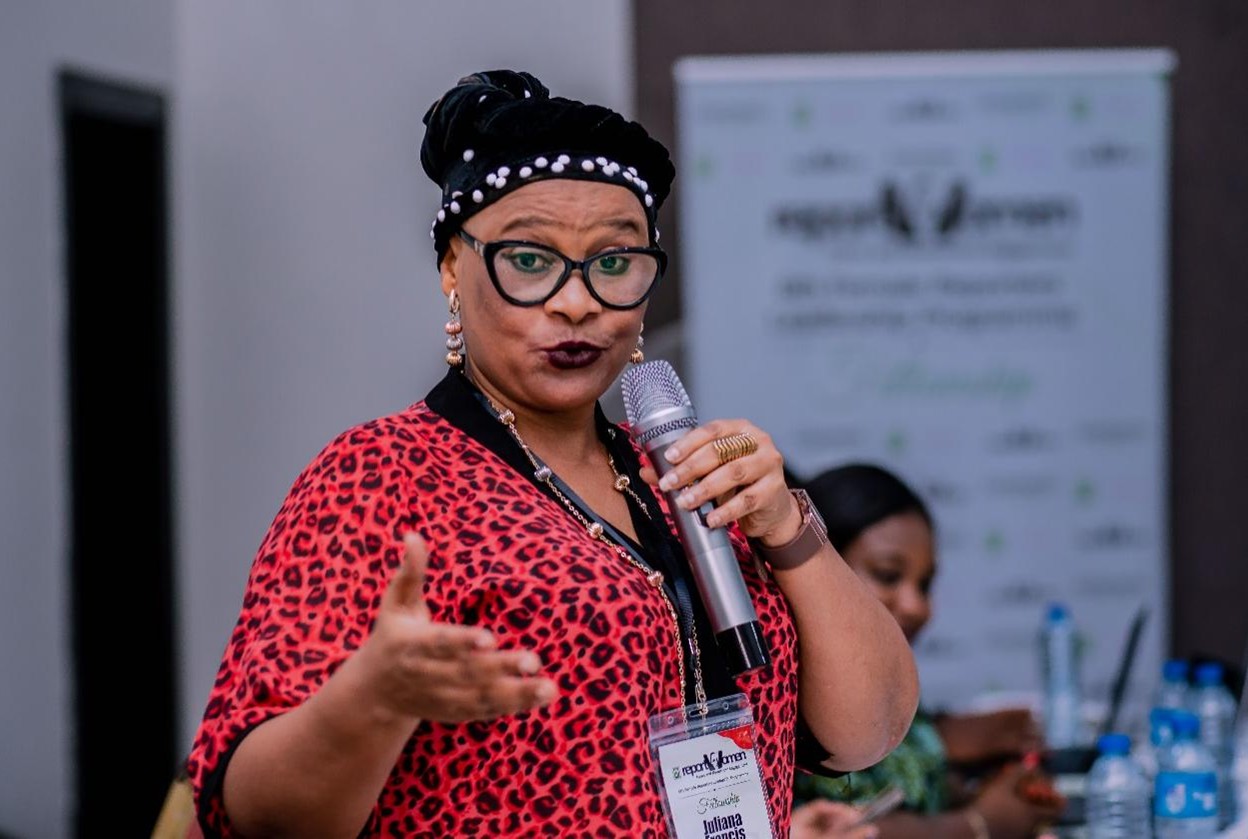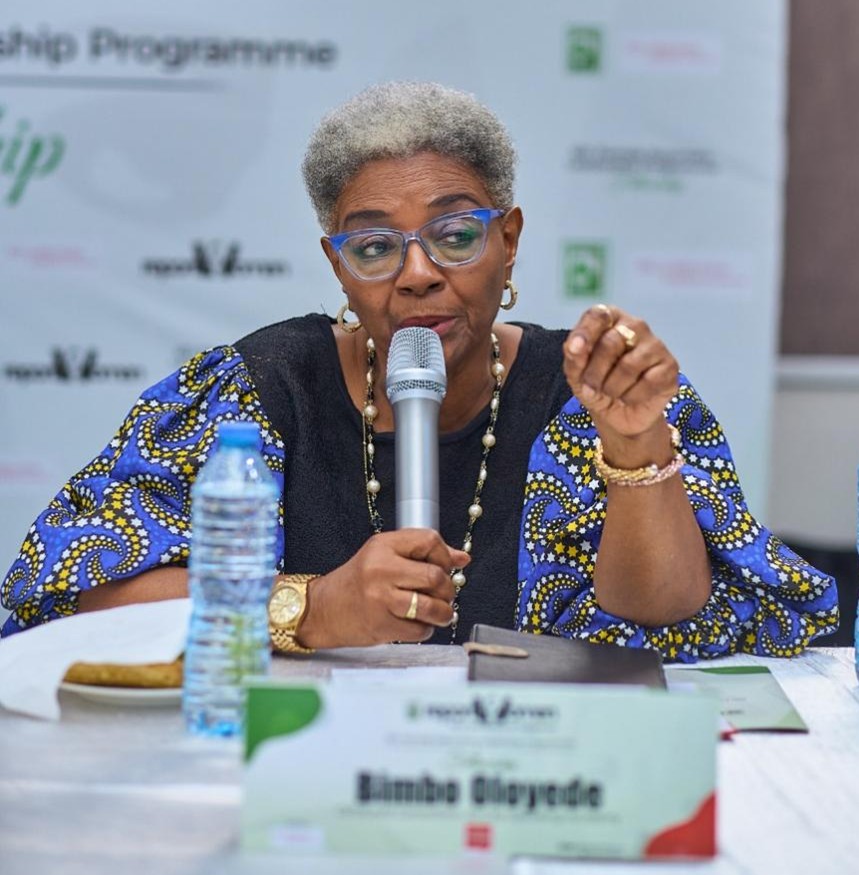The need to collaborate, include marginalised voices, amplify stories and sustain the engagement of the 26 media organisations of the Collaborative Media Engagement for Development Inclusivity and Accountability (CMEDIA) project of the Wole Soyinka Centre for Investigative Journalism (WSCIJ) were some of the highlights of the meeting between WSCIJ and CMEDIA partners on Friday 19 January 2024.
WSCIJ organised the meeting to provide a platform for partners to give account of their activities in 2023, share milestones and challenges and state plans for 2024 as they work to enhance public awareness, foster transparency, and accountability, promote good governance at the state and local government levels and amplify marginalised voices through 26 direct media partners and tens of other media organisations and reporters.
While reviewing the progress and strategies for future works under the project, Abigail Ogwezzy-Ndisika, Technical Adviser, CMEDIA project, said the organisations should focus on enhancing their capacities to attract and manage grants by the end of the project in 2024. The Professor of Mass Communications said funding sources outside the MacArthur Foundation’s intervention will guarantee their sustainability beyond the grant period. She lauded the partners for their interventions and impacts on policy implementations, increased participation of marginalised voices and improved media reporting at the local and state level of governance in Nigeria through training for journalists, community advocates, and published investigative stories.
Motunrayo Alaka, Executive Director/CEO, WSCIJ, highlighted the importance of collaboration among partners and other media organisations outside the collaboration. Alaka said beyond reporting the stories, the organisations must also focus on following up to get required attention even as she reiterated the need for the organisations to become sustainable beyond the current support. She asserted that with the organisations’ activities under the project focused on improving the ecosystem for transparency, accountability, and good governance for subnational governance, they must lead the change that local journalism requires. Alaka urged them to implement their 2024 activities in good time and finish the project cycle strong.
At the meeting moderated by Samson Ademola, Programme and Research Officer, 25 organisations made presentations about their activities and achievements in the year under review and plans for the last lap of the project supported by the MacArthur Foundation.
In year two, some of the CMEDIA partners conducted research, media roundtables, issue-based training for journalists, campus Journalists and Persons with Disabilities (PWDs) on local reporting, open contract reporting, data journalism, fact-checking, Freedom of Information (FOI) Act usage and support for media startups.
Some focused on exposing infrastructural deficiencies in the educational sector across various states within the six geo-political zones and the Federal Capital Territory, Abuja. Others reported on agriculture, insecurity, effects of insecurity, private sectors and Internally Displaced Persons (IDPs) plights. There were also reports on regulatory failures, activities of government agencies, the infrastructural deficit in the health care sector (rural health and primary health care), tourism, road, labour, environmental issues, fact-checking, mining activities and effects on host communities while others amplified the voices of women and marginalised voices at the subnational level.
The partners highlighted their impacts on government policies such as the Federal Government’s suspension of the evaluation and accreditation of degree certificates from universities in Benin Republic and Togo, as a result of the undercover report by a Daily Nigerian reporter who bagged a 4-year degree in 6 weeks. The Arrow of God story by the Foundation for Investigative Journalism (FIJ) led to the closure of the Arrow of God Orphanage in Lagos and Anambra while the National Agency for the Prohibition of Trafficking in Persons (NAPTIP) took possession of an illegally sold baby and the Lagos and Oyo State governments held a stakeholders’ meeting with orphanage operators within their states.
WSCIJ as the coordinating organisation engaged 15 resource persons, trained 231 journalists and funded seven investigative stories. Through the organisation’s intervention under the CMEDIA project, TVC News and The Nation Newspaper each set up investigative desks.
The partners also lauded the project’s impact on their organisations’ network visibility, financial record keeping, fact-checking capacity and enhancement of workforce capacity to write quality investigative reports and report on marginalised groups. The partners promised the continued delivery of in-depth and data-driven investigations at subnational levels, develop policy frameworks, media toolkits and increase the use of national accountability data platforms for reporting as the CMEDIA project enters its last year.

